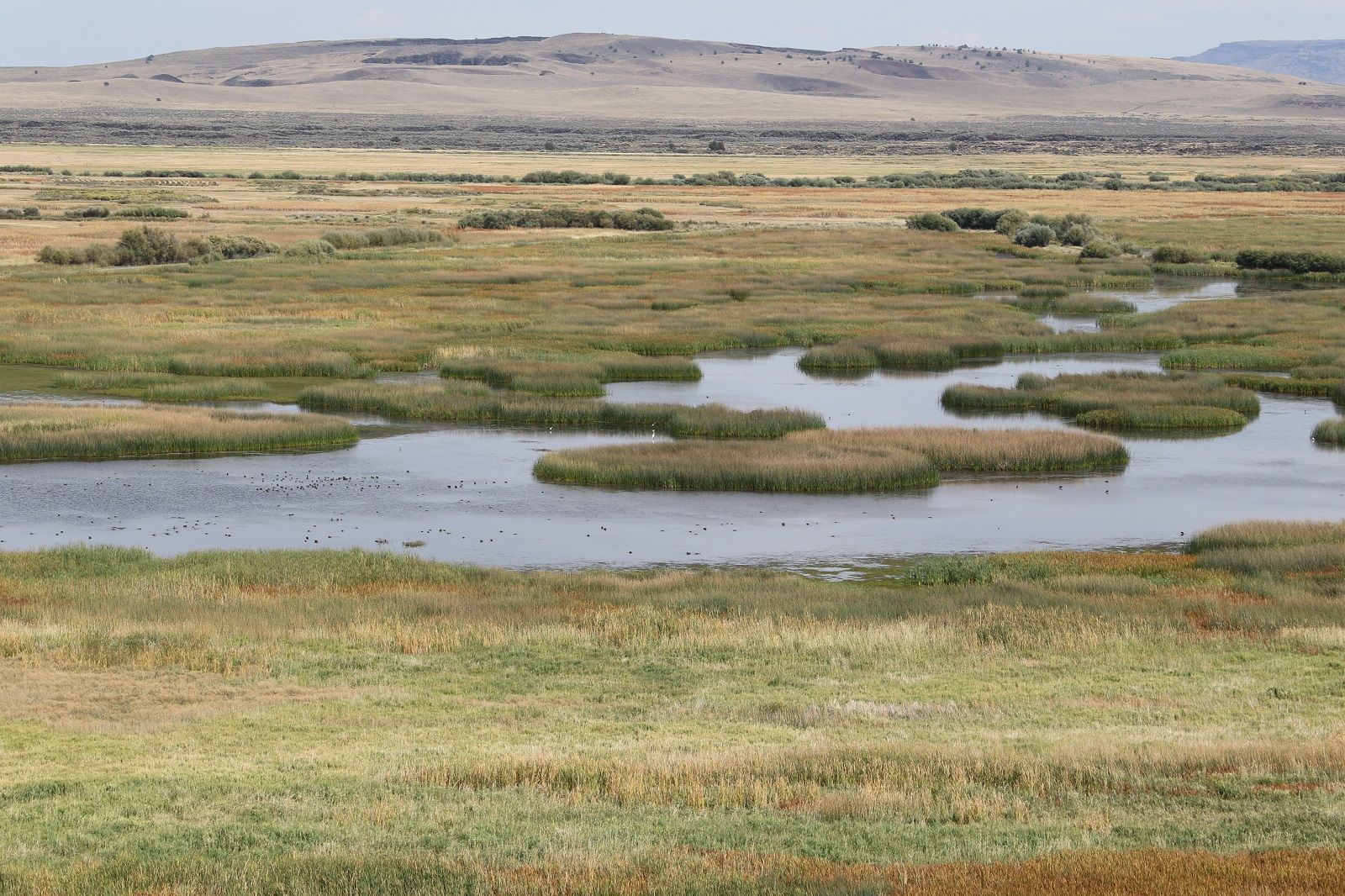Biological Technicians
About us
At High Desert Partnership, we are a team of eight permanent staff based in Harney County. By working together we’ve found practical ways to tackle some of our community’s hardest challenges—restoring forests and wetlands, mitigating wildfire, creating opportunities for youth, and growing our local economy.
Why we need you
We are committed to science-based adaptive management that supports various work occurring in Harney County in rangelands, wetlands, and forests to address ecosystem problems from increased wildfire caused by exotic annual grass invasion to the declined aquatic health of Malheur Lake. You will be part of a crew implementing vegetation monitoring activities to gain data for adaptive management.
Job description
We are hiring up to four biological technicians ($15-17/hr, based on experience) and one crew leader (up to $19/hr) to conduct vegetation monitoring in Harney County. Start and end dates are flexible. Beginning in late May to mid-June and ending about mid-September, technicians will visit project sites throughout Harney County and collect plant species composition data and other various data. The start date is negotiable; work may continue into late September, depending on need. Fieldwork will occur weekdays and generally will be 10-hour workdays, Monday-Thursday, not to exceed 40 hours/week. This work is performed in an outdoor environment that ranges from very cold and wet to very hot and dry. This work may require physical exertion over very steep, wet, muddy, slippery, rough, uneven, or rocky surfaces; and also may include bending, crouching, stooping, stretching, reaching, and similar activities. Technicians may expect
- working in and around areas with abundant mosquitos,
- working in dry heat and other inclement weather conditions,
- and living in a remote setting with limited services.
The more distant field sites will require some overnight car-camping. Office days mainly consist of data entry and equipment maintenance.
Technicians will have the opportunity to gain experience with vegetation monitoring protocols, using various types of sampling equipment and navigating to sites, and to network with our partners--staff from agencies and non-profit organizations.
Duties
Flexibility in assigned tasks is a must for this position because work may be influenced by weather conditions or shifting priorities. Training in all protocols will be provided. Below is a general list of duties that technicians may be asked to perform:
- Conducting line-point intercepts to measure vegetative foliar, basal, and ground cover.
- Identifying wetland and rangeland plants to species using plant identification guides and provided training.
- Clipping and weighing above ground plant biomass.
- Navigating to remote field sites using navigation applications.
- Driving on rough 4WD roads to access field sites.
- Entering data using Microsoft Excel or Access or Google Sheets in an office environment.
- Following detailed field protocols.
- Assisting partner biologists with other on-going monitoring projects.
Qualifications
Preference will be given to applicants who have or are pursuing a degree in a biological sciences or natural resources-related field (e.g., botany, ecology, or rangeland management) and have experience or training in (1) identifying plant species (preferably Great Basin vegetation), (2) vegetation sampling techniques, such as line-point intercept, biomass sampling, and transect/ground photo monitoring, (3) living or working in rural/remote locations, and (4) experience operating 4WD vehicles and navigating with various GPS applications/equipment. The crew leader should have prior experience leading and supervising field crews. Successful applicants must have a valid driver’s license and acceptable driving record.
How to apply
Please email a resume, cover letter, and three references AS ONE DOCUMENT/FILE to kaylee@highdesertpartnership.org by March 15, 2021. Position selections may be made at any time so your prompt application submission is encouraged.
About the area
Harney County is home to the Malheur National Wildlife Refuge, the Steens Mountain Wilderness, the Alvord Desert, and the Southern Malheur National Forest. While Burns and Hines are remote, rural communities with limited services, local recreation opportunities abound and include backpacking, hiking, hot springing, ATVing, bird-watching, and more. Burns and Hines are situated so that you have much of central and eastern Oregon at your doorstep for even more weekend recreation opportunities.
Contact
Kaylee Littlefield, Community Involvement & Monitoring Coordinator | kaylee@highdesertpartnership.org.

